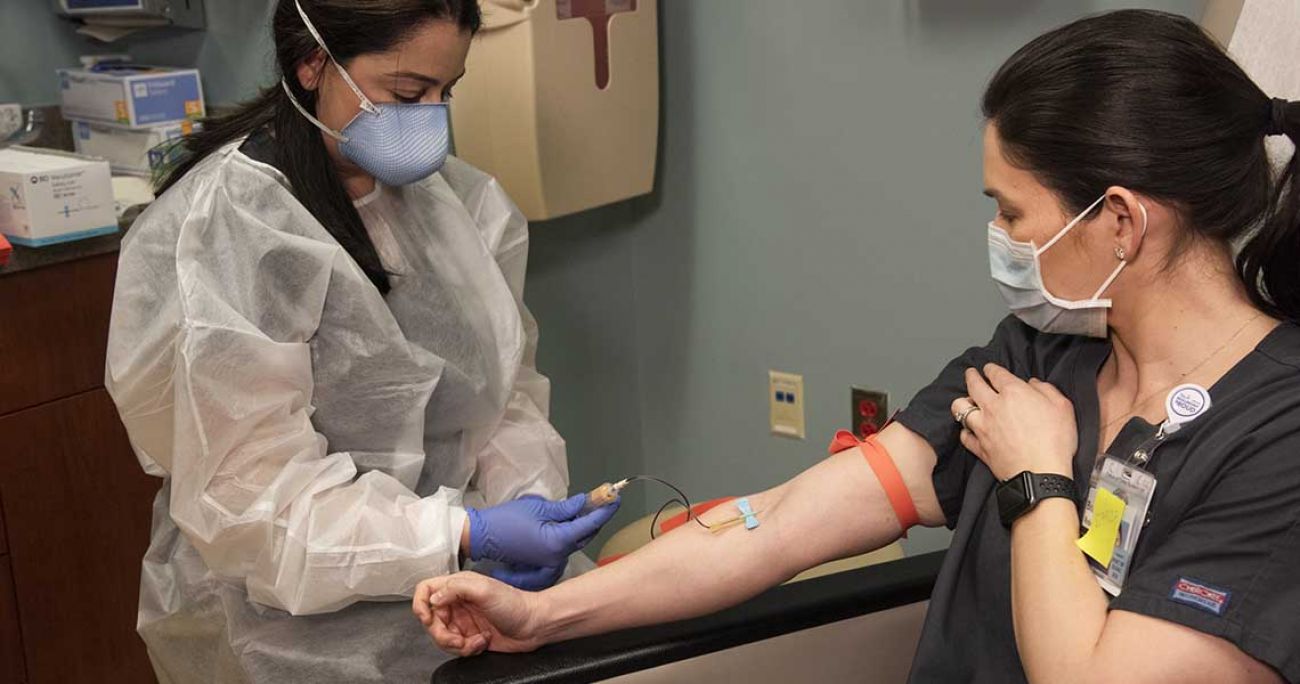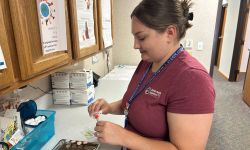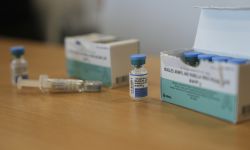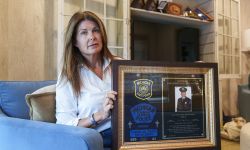Testing immunity to coronavirus may help Michigan open for business sooner

Michigan’s ability to develop immunity to the new coronavirus will be crucial in laying out plans for the state’s return to normal.
And at least three Michigan health systems — two behemoths in metro Detroit, and a 150-bed facility in central Michigan — are working to answer questions on the topic.

Beaumont Health, the state’s largest hospital system, announced a large-scale study on Monday that it hopes could lead to treatment for COVID-19 or guide vaccine development. Henry Ford Health System is poised to do a similar, if much smaller, study.
And in Owosso, Memorial Healthcare, a 150-bed facility with more than two dozen satellites, is also developing serologic testing to determine whether there is broad immunity to COVID-19.
“There are a lot of unanswered questions,” said Nick Decker, director of laboratory services at Memorial.
- The latest: Michigan coronavirus map, locations, updated COVID-19 news
- What Michigan's new coronavirus stay-at-home executive order means
- When Michigan unemployment, stimulus checks, and $600 CARES money will arrive
The initiatives look beyond the day-to-day detection and isolation of people with active infections. Serologic tests search for past infections by detecting antibodies in blood that develop after someone has been infected, including people who may have been asymptomatic and may not realize they were ever a carrier.
If the past is any guide — and it is not yet certain that it is — someone who has been infected develops an immunity to the virus that can last from a year or so to forever.
The Beaumont study will focus on employees and patients “to see if they've been exposed to COVID and if they've mounted a response and hopefully become immune to it, as you would with the flu or the chickenpox or any number of other viruses,” Dr. Matthew Sims, Beaumont’s director of infectious diseases research and study’s principal investigator, said Monday afternoon.
Researchers believe that antibodies to COVID-19 develop as soon as three to six days after a COVID-19 infection, and they remain after a patient recovers, according to Beaumont doctors. And research suggests that as many as half of those infected with COVID-19 may not show symptoms even as they are contagious, which is a significant factor in why the spread of the disease has been so difficult to identify and contain.
A similar serological study of Middle East respiratory syndrome, or the MERS coronavirus, in 2015 tested 10,000 people in Saudi Arabia. Researchers concluded nearly 45,000 people in the country might have been exposed to the virus as compared to fewer than 2,500 cases of MERS that were verified around the world.
But since COVID-19 is so new, its list of unknowns is long:
How long do antibodies last in COVID-19? Do they provide immunity? If they provide immunity, for how long? And, importantly, can one person’s immune response be used to treat others?
For Decker, at the Owosso health system, it’s also unclear whether an expectant mother’s infection triggers antibodies that can pass to her child, offering the newborn immunity.
The breadth of immunity left in the wake of the virus is crucial information not only to front lines health care providers and first responders, but to the “happy and healthy crowd that wants answers so they can be confident” returning to everyday life, Decker said.
Memorial has invested between $40,000 and $50,000 in testing equipment, and lab staff are being trained, he said, with testing potentially beginning in the next few weeks.
Meanwhile, the Henry Ford’s Institutional Review Board said Monday it approved a 3,000-subject research study with first responders, healthcare workers and critical infrastructure workers.
The study will help identify whether others were infected by COVID-19 but remained asymptomatic, said Dr. Marcus Zervos, who heads Henry Ford’s infectious disease division. Details are being finalized about when participants can volunteer, he said.
One of the hurdles to broader testing among hospitals is that the U.S. Food and Drug Administration has only approved one test so far for antibody testing, developed by North Carolina-based Cellex, a medical diagnostics company.
Neither the Beaumont test nor the Henry Ford tests have been approved.
Beaumont participants will be drawn from volunteers among the system’s patients and 38,000 employees, as well as thousands of doctors and employees affiliated with the Southfield-based health system. They will have their blood drawn at least twice over two or more weeks. Some participants will be followed and tested for up to seven years, Sims said.
The efforts ultimately may help identify people who have immunity to the virus, including those who may be donors whose plasma may help treat the sick and get others more quickly back to work.
The treatment has been used in China with some success, according to Sims.
Answers from serologic testing could guide development of a vaccine, too.
If the body’s immune response is “vigorous” and the antibodies “long-lasting,” a vaccine may be relatively easy to develop. But if the antibodies fade or give only partial immunity, a vaccine may be more difficult, said Beaumont’s Sims.
RESOURCES:
- Hey, Michigan, here’s how to make a face mask to fight coronavirus
- Michigan coronavirus dashboard: cases, deaths and maps
- Michigan families can get food, cash, internet during coronavirus crisis
- How to give blood in Michigan during the coronavirus crisis
- 10 ways you can help Michigan hospital workers right now
- Michigan coronavirus Q&A: Reader questions answered
- How to apply for Michigan unemployment benefits amid coronavirus crisis

See what new members are saying about why they donated to Bridge Michigan:
- “In order for this information to be accurate and unbiased it must be underwritten by its readers, not by special interests.” - Larry S.
- “Not many other media sources report on the topics Bridge does.” - Susan B.
- “Your journalism is outstanding and rare these days.” - Mark S.
If you want to ensure the future of nonpartisan, nonprofit Michigan journalism, please become a member today. You, too, will be asked why you donated and maybe we'll feature your quote next time!








